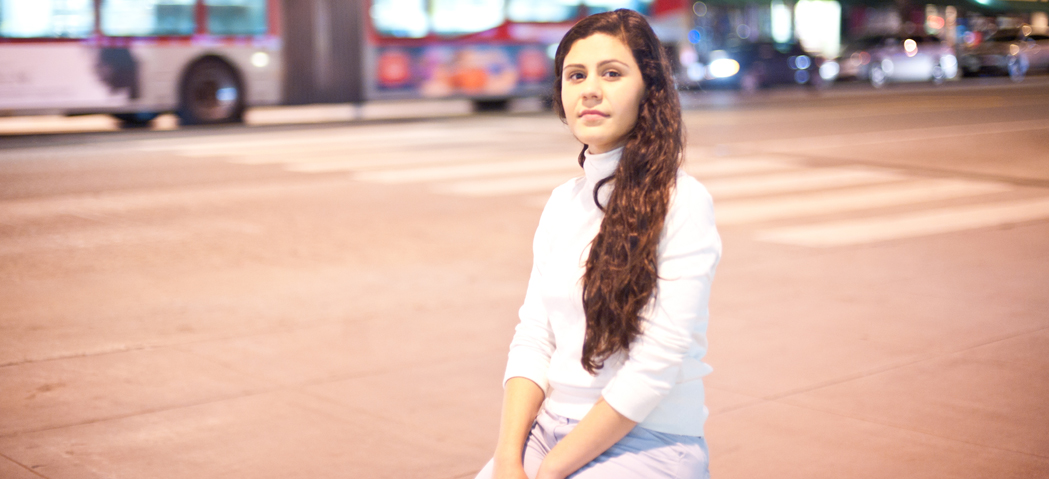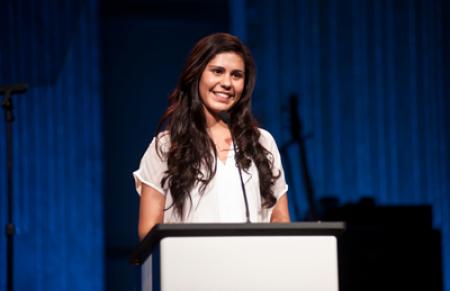Unexpected Teachers

Sometimes the most important learning happens outside of the classroom
By Mariana Aguilar

Students start college with many expectations, but learning from Holocaust survivors was never one of mine. It happened during my junior year at USC, in a class offered by the Institute of Multimedia Literacy, when the professor assigned a project unlike anything I had ever done before. Each student had to produce a short film based on testimony from the USC Shoah Foundation’s Visual History Archive and enter it in something called the Student Voices Short Film Competition.
Not only had I never watched survivor testimony before, but I wasn't a filmmaker or even a film student! I was majoring in psychology. But I did have some background in multimedia, and it was enough to make me aware of visual medium’s power to move people.
The idea behind the contest was to encourage dialogue about genocide and human rights, and I decided that my film would explore persecution in contemporary times. Then my professor suggested something more specific.
My first encounter with racism happened in college, when someone I who thought was a friend spoke derogatorily about my Mexican ancestry. It was hurtful and humiliating, and with no way to share what I feeling with others, I was left with a sense of isolation that made it even more difficult to heal. This was the experience my professor thought I should deal with in my film.
That semester, I watched more than 40 hours of testimony. As I saw the survivors share emotions similar to what I felt—amplified times a million—I realized that I wasn't the only one who, at some point, had been made to feel shame simply for being born into certain group. Hearing survivors' voices, seeing their faces, and connecting with them on an emotional level was empowering. I felt like I could say something, too; I could use my film as a way to say, “Listen up! Prejudice? Bigotry? Hatred? They still exist.”
I entered my film in the contest. It was called "Beanstar," and it won the Viewers' Choice Award, which was totally unexpected. But it was nothing compared to the surprising effect of watching Holocaust survivor testimony; the truth is, it changed my life. It restored my confidence as a Mexican American, it helped me heal from the hurtful incident I had experienced, and most importantly, it renewed my sense of responsibility to teach respect and empathy to others.
I'm in graduate school now, but I'm also in my first of two years teaching as a member of Teach For America. My students are in third grade, and while it might not be easy to broach difficult subjects such as racism with young children, helping them think critically about stereotypes is one of the most important things I can do. For better or for worse, we all have the power to change someone’s life; I learned this from the Holocaust survivors, who changed mine.
To watch the short film, called “Beanstar,” which I entered into the Student Voices Film Contest, visit: http://sfi.usc.edu/studentvoices/2011/
Mariana Aguilar is a third grade teacher at View Park Elementary Accelerated Charter School, in Los Angeles, Calif., and a Teach for America Los Angeles Corps Member. She is a graduate student at Loyola Marymount University, pursuing a master's in urban education. Aguilar graduated from USC with a major in social science with an emphasis in psychology. She won the 2011 Viewer’s Choice Award for the USC Shoah Foundation’s Student Voices Film contest.
This article first appeared in the Summer 2013 issue of PastForward, the Institute's digest.